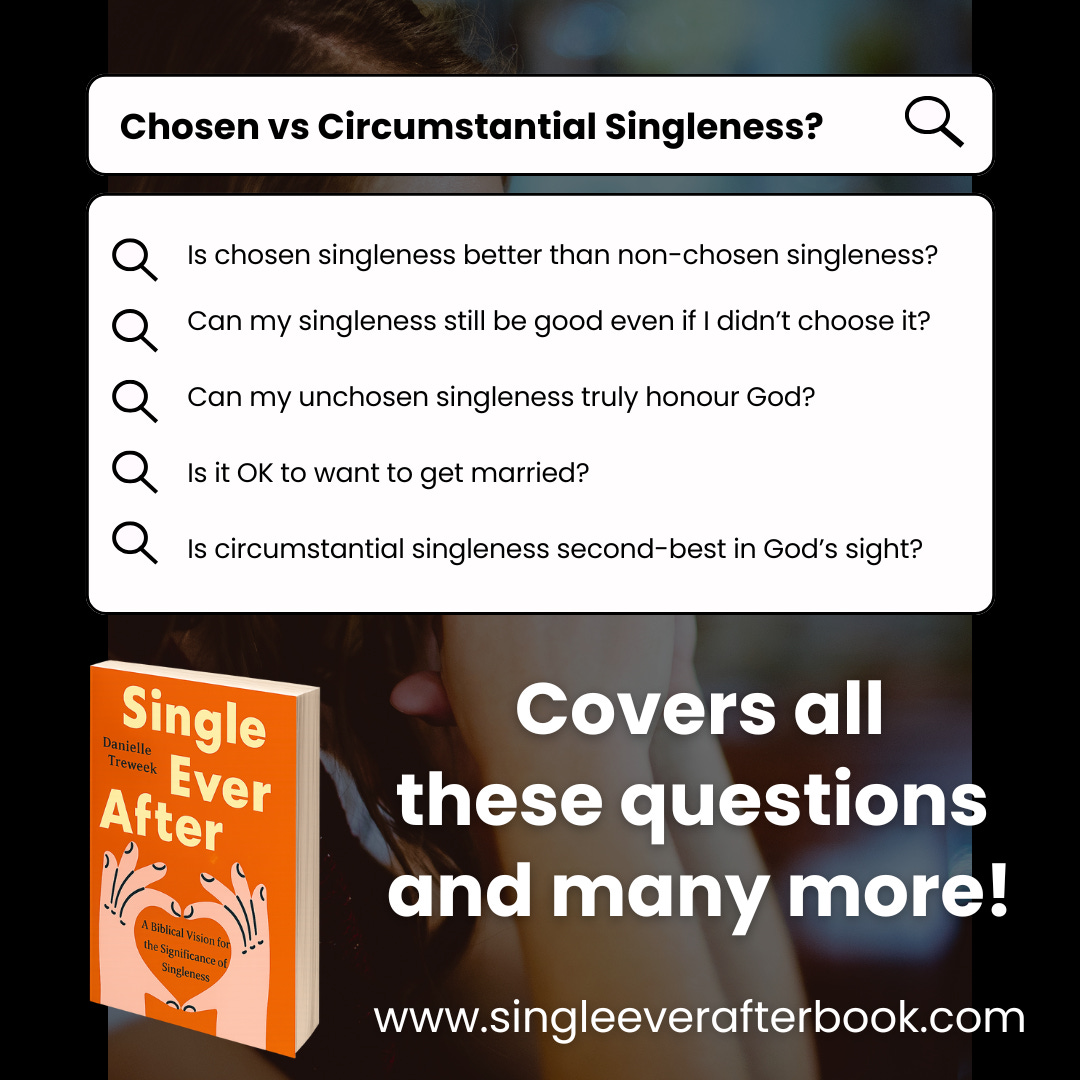Is Choice the New (but Old) Spiritual Credential for Singles?
Inside Chapter Four of 'Single Ever After'
If there’s just one chapter of Single Ever After I wish the whole church would read right now, it would probably be this one.
We’re watching a new kind of hierarchy quietly emerge in the way Christians talk about singleness—one that risks marginalising many of the very singles we ought to be honouring. Frankly, it’s a trend I find deeply concerning. And it’s gaining momentum.
This chapter pushes back against the idea that the only truly meaningful singleness is the kind that is intentionally chosen. It questions a growing language shift—from “singleness” to “celibacy”—that subtly recasts one kind of unmarried life as nobler, holier, and more kingdom-focused than others.
If we let this narrative get too far ahead of us, we risk creating a second-class citizenship within the body of Christ for those whose singleness wasn’t chosen but is nonetheless faithfully lived.
“We all know single Christians who would choose to marry if the choice was theirs. Indeed, perhaps you are one such a single person. Even some who feel generally content in their singleness are still open to the possibility of marriage. And yet, for many, that possibility never seems to present itself. No matter how many social mixers they attend, online dating apps they try out, matchmaking friends they have and earnest prayers they offer, marriage seems to remain out of their reach. And so the concept of having control over their own marital destiny feels little more than an abstract ideal.
The frustration they feel is further compounded by a surrounding culture that heavily idealises choice as necessary for personal fulfilment and authenticity… This can leave many singles not only grieving for what seems beyond their reach but feeling as if they are victims of their circumstances—as though their life is not actually theirs after all.
What is more, because we Christians are more influenced by that worldly veneration of choice than we realise, many within the church today are increasingly doubtful that singleness can truly be good for a person—or perhaps more to the point, truly useful for the kingdom—unless it is has been actively chosen and intentionally stepped into.”
Single Ever After (p. 76-77)
Chapter Four explores how our cultural obsession with choice—and even the church’s idealisation of intentionality—can lead us down a dangerous theological and pastoral path. One where only the “vocational celibate” is seen as truly living for Jesus.
But Scripture doesn’t separate unmarried disciples of Christ based on how consciously they arrived at their marital status. Paul doesn’t say, “Only the intentionally unmarried are useful to the kingdom.” And Jesus doesn’t elevate chosen celibacy over circumstantial singleness. (No, not even in that passage about the eunuchs. You’ll need to read the book to discover why!)
In this chapter, I argue we must recover a biblical vision that honours all unmarried believers, not just those who fit a worldly model of “sacrifice.”
Over to You
💬 Leave a comment—Have you felt pressure to frame your (or someone else’s) singleness a certain way? Do you resonate with the tension between chosen and unchosen paths?
📖 Preorders for Single Ever After are open now—this chapter is one I’d love every church leader to read.
📬 Not subscribed yet? Click here to stay up to date, chapter by chapter.
📣 Know someone navigating singleness that wasn’t chosen? Forward this post and let them know their faithfulness in singleness matters deeply to God.
📸 Why not share this image on your socials to help shift this conversation away from hierarchy and towards faithfulness.



This hits me in a very particular way right now. It’s not been long since my divorce, and my heart and mind are not remotely ready to look at remarriage. Not to mention that I haven’t figured out where I stand in the question of if God intends remarriage after divorce to be a choice at all! There are still many emotions for me to unpack and many questions to pray through, but even so this period of “single again”, wedged uncomfortably between choice and circumstance, has been invaluable in teaching me to trust what the Lord is doing in my life.
I think I have been very fortunate to be in churches (in Australia and in France) where the false virtue of chosen singleness (or marriage) over circumstantial singleness has not been put on a pedestal.
We should frame even involuntary singleness how leadership was once framed for me-even those not appointed as elders should strive toward the qualifications of one. So, even if we aren't appointed to an official position, we still seek those good qualities.
In the same way, there are good things we usually associate with marriage that singles can strive for. The difference is that singleness has different freedoms than marriage, and everyone who can should take advantage of whatever freedom is available to them.